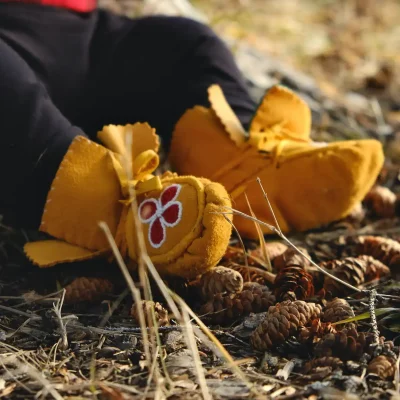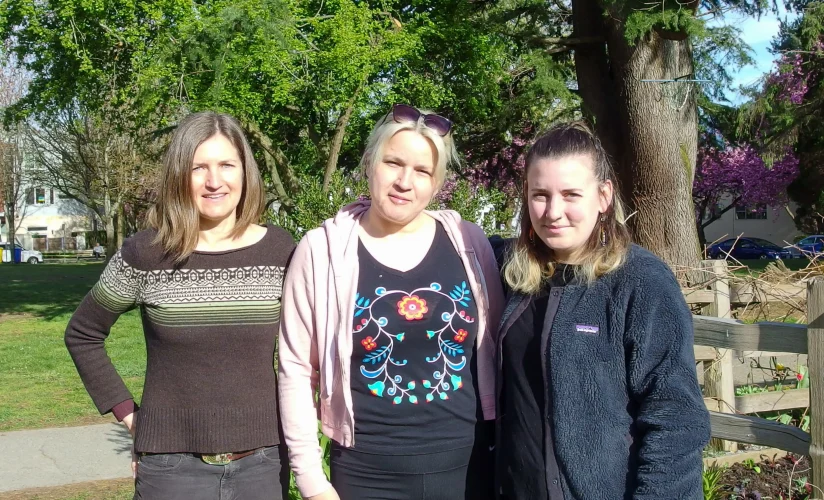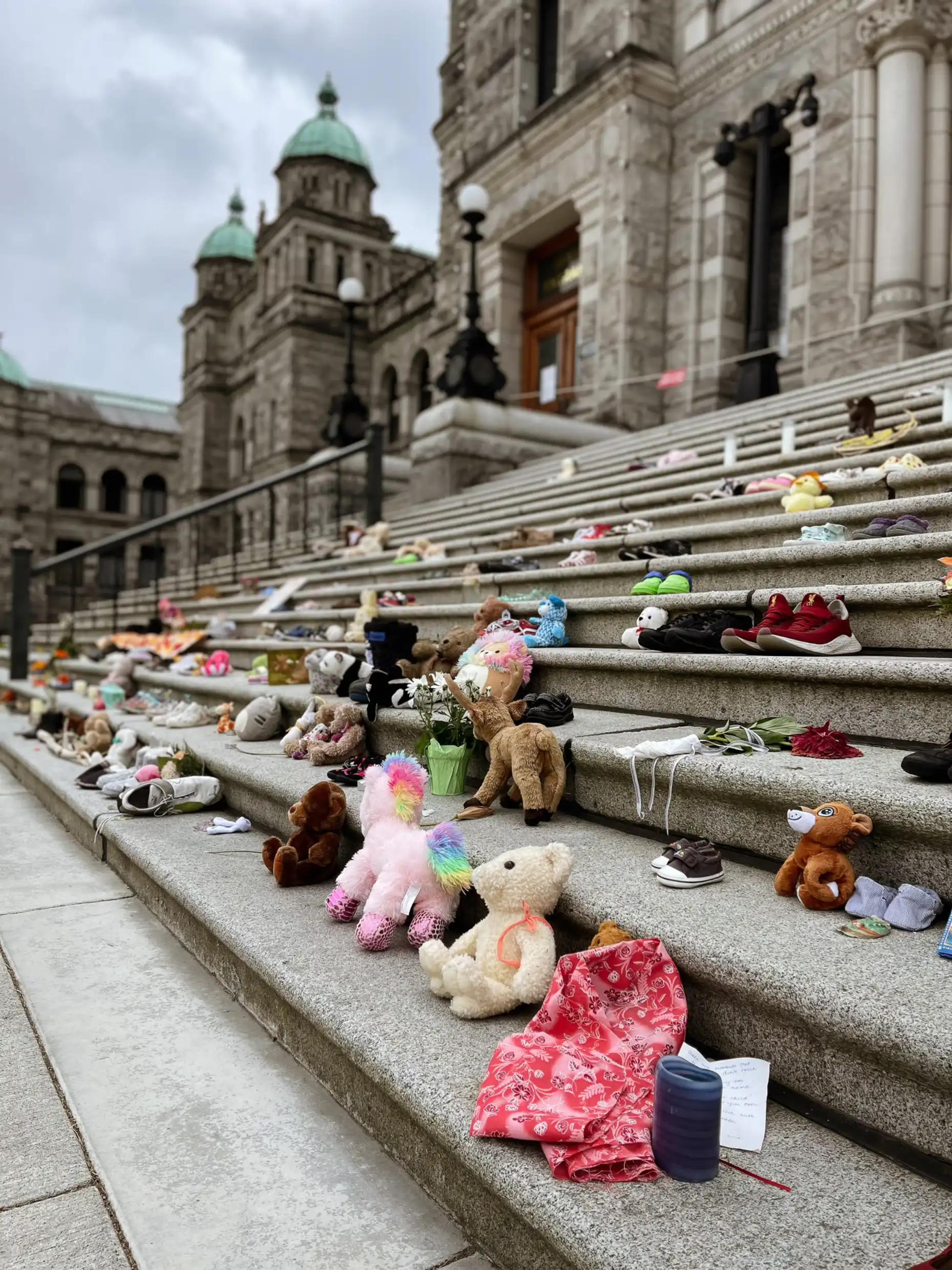
What is the Family Policing System?: An Interview with Parents Advocating Collectively for Kin (PACK)

As we mark Mother’s Day and the International Day of Families, we have been looking back and reflecting on the work West Coast LEAF is currently doing to support families, such as through our legal aid case, economic security work, and work to support kinship caregivers.
One area I am particularly passionate about is coordinating West Coast LEAF’s work and learning in the areas known as “child welfare,” or “child protection.” As our team has taken up this work in the past few years, we have been privileged to learn from families, Nations, and advocates in BC and beyond, who have generously shared their wisdom with us. This includes the amazing advocates of Parents Advocating Collectively for Kin (PACK).
PACK is a subcommittee of the BC/Yukon Association of Drug War Survivors. PACK emerged from discussions of the women’s committee, where the impact of the BC child welfare system on parents who are substance users was emphasized as a key issue the group wanted to address. West Coast LEAF connected with PACK, and we saw important overlaps and shared goals in our work in this area. Since then, we have been active partners, collaborating and sharing knowledge over the past year.
A shared reflection between PACK and West Coast LEAF was on the power of language to name and describe this system. Our two groups felt the terms “child welfare,” or “child protection” mask the harms of the system and create a challenging narrative to overcome. Family policing scholar and advocate Dorothy Roberts has advocated for people to challenge their framing and language to confront the current narrative and works towards abolishing the current system.
In our work, both PACK and West Coast LEAF have determined a more accurate and real term to name this system: the “family policing system.” We use this term to describe how the system maintains power and control over the lives of families and children—most often Indigenous families and children—through surveillance, regulation, and punishment.

In honouring and reflecting on this language shift, I sat down with Heather Spence and Keri Guelke of PACK to hear more about their reflections about the family policing system and PACK’s work challenging this system. Heather (she/her) is an Indigenous Program Coordinator and Keri (she/her) is an Administrator with PACK.
I met with Keri and Heather over tea on a Tuesday afternoon, and have edited our conversation for length and clarity.
How do you define the family policing system?
- Heather: A broken system that continues to create multiple barriers for families who need various levels of support.
- Keri: A system of policing, surveilling, and punishment that needs to be abolished. We need a system of support for families. People don’t know how hard it is to look after children, and we really don’t value child care.
How does PACK engage with the current family policing system?
- Keri: We are an alternative to that system and are advocating for mandatory support, not mandatory reporting.
- Heather: PACK’s objective is to educate families of their rights and the resources available to them.
Why are you passionate about challenging the family policing system?
- Heather: I am a Indigneous grandmother and I have seen the destruction the system is continuously causing for our families and communities. Our future leaders are struggling because of this system, with issues like addiction, mental health, homelessness, discrimination, and so forth.
- Keri: I have seen mothers’ spirits and their sense of self crushed by the system before my eyes. Watching how the system handles a child, and the child’s needs not being centred, and traumatizing the child when there are alternatives.
How does PACK approach the stigma around parenting and substance use?
- Heather: Our group is very diverse and have lived/living experience parents, which allows us to have contrasting views of substance use. Really it’s very challenging, I was also a foster parent 15 years ago and, in my culture, abstinence is preached by our people.
I can honestly say if you look at the statistics now compared to 15 years ago, there are more children in care now than there were children in the Residential School System. We have to stop stigmatizing parents who use substances and understand the history behind it before we make assumptions as to why they are using substances.
Having lived experience, I can only speak for myself but I could not disclose the truth because I was afraid of what could potentially happen to my children. This is not to say I think it’s OK to use substances while parenting, I just don’t feel there is enough education and understanding.
- Keri: We share people’s stories; we try to correct false assumptions. We are collaborating with as many aligned organizations as possible. We want to expand networks that are challenging stigma. Stigma drives people underground and can force people to not get the support they need.
In a way, stigma is class based because middle-class and upper-class parents are ingesting all kinds of substances, pharmaceutical, alcohol, or illicit, and they don’t get policed.We need to get to the root of substance use; our current policies are not getting us there through prohibition. The amount of money we spend on policing! Trying to get into treatment, it’s ridiculous! Our society’s approach to alcohol isn’t working either; look at how it’s linked to sexual violence.
The system has dual understandings depending on if you’ve been caught in the system or have never engaged with it. Often people who have never had to engage see it as good, helpful, or benevolent and necessary. How do you approach dispelling that myth?
- Heather: Again, referring back to my comment on how many Indigenous children are in the care now, it speaks for itself. Our ancestors were taken without cause, and this experience has created intergenerational trauma. Feelings of mistrust are automatically triggered leading to anxiety and fear. The proof has been displayed over and over, time and time again, this system was not intended to support our people but to divide us.
- Keri: Reconciliation doesn’t feel like it’s happening. Hearing how the ministry calls parents dishonest and not allowing parents to see their children, even when it’s possible, how is that child and family centred?
Social workers not flinching when I speak to the ministry about the dangers of overdose for mothers after removal. Workers are not responding to parents’ emails. The impact on parents when their child is removed. If people care about economics, the downstream effects on the parents that are traumatized this ends up costing the system more. They end up with so many more challenges because of the trauma.
People don’t understand the power that ministry social workers have. What do you want people to know about this power imbalance between families and the ministry?
- Keri: They have more power than the police, many legal aid lawyers seem to fear ministry social workers, they don’t challenge them. They don’t follow a code of ethics or have a regulatory body to make complaints about, many are not trauma informed.
The ministry takes people straight from school that have no experience. Many don’t have experience raising children, not that it is a necessity, but having an understanding about how much work it is to raise children adds a level of compassion. The judgment, comments, and assumptions workers will make about struggling caregivers. There was a time I was supporting a family wanting visitation and they were living in a moldy building and were getting sick and the social worker assumed it was their own fault because of their “lifestyle.” I also watched this worker change in a one year period from someone who seemed to care to someone who seemed jaded.
There was another time a grandmother asked for help to put together a very complicated crib and she was told, we’re not going to help you.” The sense was she should do it herself. There was no understanding she worked full time and was looking after her grandchild alone.
- Heather: Their lack of education on cultural awareness and understanding, not only about Indigenous people, but substance use culture, gender, and sexuality, people not understanding it.
What would be your advice to people who want to challenge the family policing system?
- Keri: Learn more about how broken the system is, donate time or money to group’s like PACK, Keeping Families Together, and Kílala Lelum. Supporting families, be part of your community of support, it takes a village!
- Heather: Connecting with organizations and groups that ultimately want to keep families together. Reaching out as we are growing and learning together and remembering that we have rights as parents and exercising those rights.
Heather Spence (she/her) is the founder of a peer-led support group called KANDU (Knowledging All Nations & Developing Unity) as well as the Indigenous Coordinator of PACK and Women’s Transitional Housing Program. She is a single parent with five children and three grandchildren with a multitude of various lived experiences. Her life goal is to speak and walk her truth and share her vision with others so they can use those tools to help them understand and heal on their life journeys.
Keri Guelke (she/her) is the Administrator for PACK and in that role has also supported families with respite and emergency childcare and advocacy. She is the mother of twin nine-year-old boys. She has a Master of Public Policy and Administration: Social Change Leadership from Adler University.
Sharnelle Jenkins-Thompson (she/her) is the Manager of Community Outreach at West Coast LEAF. Sharnelle is grateful to all the families (including her Mom) who have mentored her to work in solidarity against the family policing system and how to be there as a community to support one another.

One comment on “What is the Family Policing System?: An Interview with Parents Advocating Collectively for Kin (PACK)”
Comments are closed.